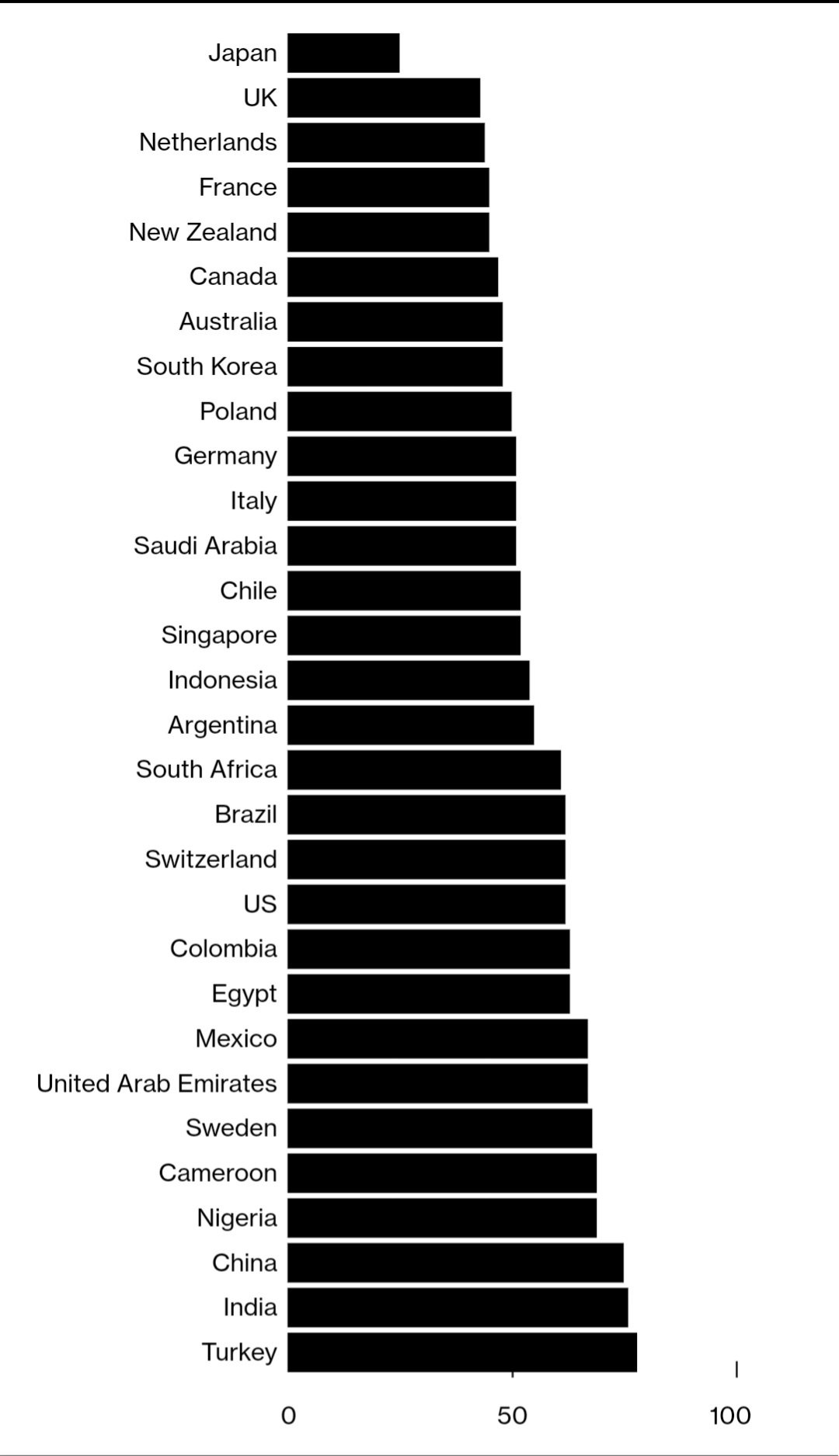

Norway isn’t in the study though? 🤨
Anyway as someone living in Norway, I can say that being one of the “happiest countries in the world” is very easy to achieve when a large percentage of the population has low standards from poor global exposure.
Working hours, worker protections and safety nets can be good indicators. While I don’t really trust McKinsey, I can say that “employee well-being” is more than these measures. In this survey, they looked at physical, mental, social and spiritual health. I’d guess that if Norway was included, they would actually do pretty badly.
Our health system - for both physical and mental health - is failing very badly (it’s also not free, not even all that cheap by the way.) I say this as someone who has used the system, have friends and family who have used it, and have friends working in both sectors. Immigrant friends and colleagues, some from third-world countries, return home when they need anything relating to health rather than rely on the local system. There is also a growing medical tourism industry, where people travel to places like Poland and Romania.
Social health is also probably low-ranking, especially for immigrant employees. Language and the culture of social exclusion by locals are large barriers to entry. A different survey has actually shown Norway ranking last in expat happiness/desirability.
Ultimately, all countries have their good and bad sides. I guess I just wanted to provide some insight into the misconceptions of Norway people generally have.

Maybe because it’s been overwritten by the brutality of Israel’s latest massacres? 🤨